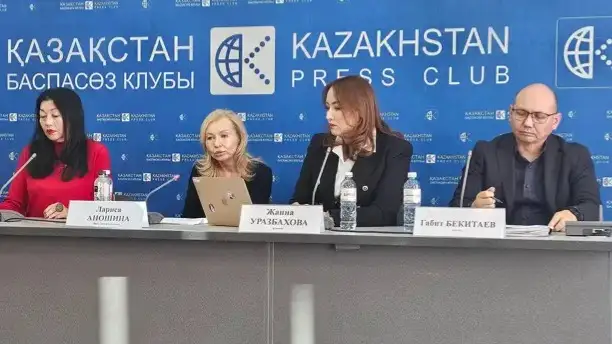The International Commission of Jurists (ICJ) condemns the initiation of criminal proceedings by Almaty Police Department against lawyers Zhanna Urazbakhova and Gabit Bekitayev in Almaty. The ICJ believes that these proceedings are likely to have been undertaken in response to the lawful exercise of their professional duties.
On 12 December 2024, Urazbakhova and Bekitayev held a press conference where they spoke about their clients’ legal positions regarding an ongoing case involving a high-profile property dispute. On 27 December, the Almaty Police Department initiated criminal proceedings against both lawyers pursuant to Article 423 of Kazakhstan’s Criminal Code, alleging unauthorized disclosure of pre-trial investigation information. Urazbakhova and Bekitayev reject these allegations, maintaining that they did not disclose any confidential information and that the press conference was intended solely to convey their clients’ assertions of innocence. They credibly argue that they had not signed any non-disclosure agreement related to the case materials and that their statements at the press conference were fully in line with their professional duties and ethical obligations.
The ICJ considers that initiating criminal proceedings against Urazbakhova and Bekitayev, in the apparent absence of any indicia of wrongdoing beyond their legitimate professional activities, constitutes undue interference with the exercise of their professional functions, in contravention of Kazakh law and international standards on the independence of the legal profession.
“These apparently unwarranted charges constitute interference with the independence of the legal profession in Kazakhstan,” said Temur Shakirov, ICJ Director (ad interim) of Europe ICJ Europe and Central Asia Programme. ” Lawyers must be able to perform their essential role in defending the rights of their clients without fear of retaliation or judicial harassment. The ICJ calls on the authorities to drop these charges and ensure that legal professionals are able to operate in an environment free from intimidation and undue pressure.” added Shakirov.
Subjecting lawyers to criminal sanctions for publicly addressing legal matters affecting their clients creates a chilling effect on the legal profession as a whole, discouraging lawyers from fulfilling their fundamental role in upholding the right to a fair trial and access to justice. The ICJ underlines that an independent legal profession is a cornerstone of the rule of law and that attacks against lawyers undermine the integrity of the justice system.
The ICJ calls on the authorities of Kazakhstan to take measures to ensure that all lawyers can carry out their professional functions free from harassment, intimidation, or improper interference. The ICJ urges the authorities Almaty Police Department to “drop these charges, unless information is provided that would constitute evidence of a recognizable crime” against Urazbakhova and Bekitayev.
Background:
These charges against the two defendants carry penalties ranging from fines to imprisonment of up to two years. The case is linked to a legal dispute between businessperson Alexander Belovich and his ex-wife, Liliya Anoshina, whom both lawyers represent.
Under Article 14 of the International Covenant on Civil and Political Rights (ICCPR), to which Kazakhstan is a State Party, every individual is entitled to a fair trial, including the right to legal representation of their choice. International standards further guarantee that lawyers must be able to perform their professional functions without fear of intimidation, reprisal, or interference. The UN Basic Principles on the Role of Lawyers state that governments must ensure that lawyers do not face prosecution or sanctions for fulfilling their duties, nor should they be identified with their clients’ causes as a result of their legal representation. Article 19 of the ICCPR, also affirmed by Principle 23 of the UN Basic Principles, obliges States to protect a lawyer’s right to freedom of expression, including their right to engage in public discussions concerning legal matters, the administration of justice, and human rights, without facing professional restrictions or harassment.
Read this statement in Russian here





